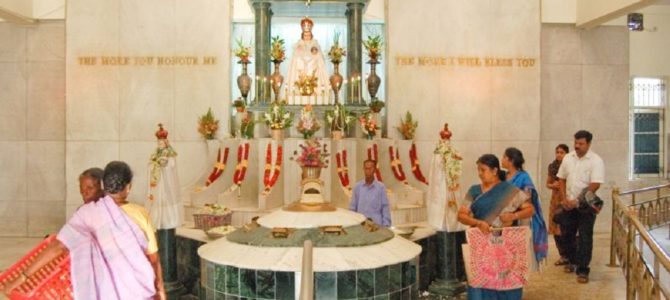
Deadly inter-religious violence has flooded into Delhi in recent days, leaving more than 30 people dead. U.S. Commission on International Religious Freedom (USCIRF) Commissioner Anurima Bhargava stated, “reports are mounting that the Delhi police have not intervened in violent attacks against Muslims, and the government is failing in its duty to protect its citizens.”
Ongoing clashes between Hindus and Muslims, and Indian Prime Minister Narendra Modi’s unwillingness to end it, demonstrate the need for American leaders to raise the issue of religious freedom with the Indian government. President Trump was welcomed last week to India by Prime Minister Modi.
Modi worked to make the best impression possible, welcoming President Trump with folk dancers, live music, and streets lined with cheering crowds. Yet one thing Modi could not gloss over is his country’s religious freedom problems.
Religious freedom in the world’s largest democracy has taken a turn for the worse since Modi’s election in 2014 and the rise of the Hindu nationalist Bharatiya Janata Party (BJP). The BJP asserts that “to be Indian is to be Hindu,” implying that Christians, Muslims, and anyone who adheres to a faith other than Hinduism is eroding national unity.
Just one day before Trump’s visit, authorities used tear gas to shut down a large protest in New Delhi against the Citizenship (Amendment) Act passed in December, which gives immigrants of certain religious groups a fast-track for citizenship but notably excludes Muslims. The BJP’s latest initiative against the country’s religious minorities, this act drove hundreds of thousands of Indians to the streets in protest. Muslims in India fear this measure may be followed by an effort to strip them of their Indian citizenship.
While the BJP targets Muslims through legislation, religious minorities continue to be a target of mob violence at the hands of Hindu extremists who are emboldened by the discriminatory bent of the BJP. Even before becoming prime minister, Modi had a reputation for turning a blind eye to atrocities inflicted by radical Hindus. When Modi was chief minister of Gujarat State, violent mobs killed hundreds of Muslims in pogroms. These acts met silence from Modi then, and now mob violence is still met with few rebukes from Modi’s administration.
When they aren’t openly targeting religious minorities, Indian authorities at all levels of government are failing to protect them from mobs looking to enforce the Hindu nationalist agenda. Earlier this year, a group of Hindu villagers brutally attacked a Christian pastor and threatened to kill his wife. They harassed him until his church discontinued worship services.
These violent mobs are not afraid of legal repercussions. They know from experience they can get away with violence as long as their target is a religious minority. The legal system in India is regularly used as a weapon against Christians, who often find themselves falsely accused and facing an unsympathetic court.
In January, a small group of Christians gathered in a home for worship was attacked by a mob of radical Hindu nationalists, who beat everyone who was there, including the children. The attackers threatened to burn the Christians to death if they went to the police, but police soon showed up at the home to inform the congregation that a criminal complaint had been filed against them by their attackers.
Although India’s constitution defines it as a secular country, anti-conversion laws in several Indian states discourage Christians from evangelizing. False allegations of forced conversions often inspire attacks on Christians.
In its 2019 annual report, USCIRF noted that, in 2018, approximately one-third of Indian state governments increasingly discriminated in their enforcement of anti-conversion laws. It’s clear that Indian law needs to include more protections for religious minorities, and that state and local law enforcement must to be instructed to take the cases of violence against religious minorities seriously.
India is an important strategic partner for the United States in a region with growing tensions. However, maintaining a friendship with India does not mean we must look the other way on their religious freedom violations. The countries we partner closely with should share our core values or be encouraged to do so.
When the United States stands with a country, it sends a message to the rest of the world about the type of behavior we will tolerate. Countries that work with us, including India, should be encouraged to correct their human rights record. We should be expecting more—not less—from our allies.









